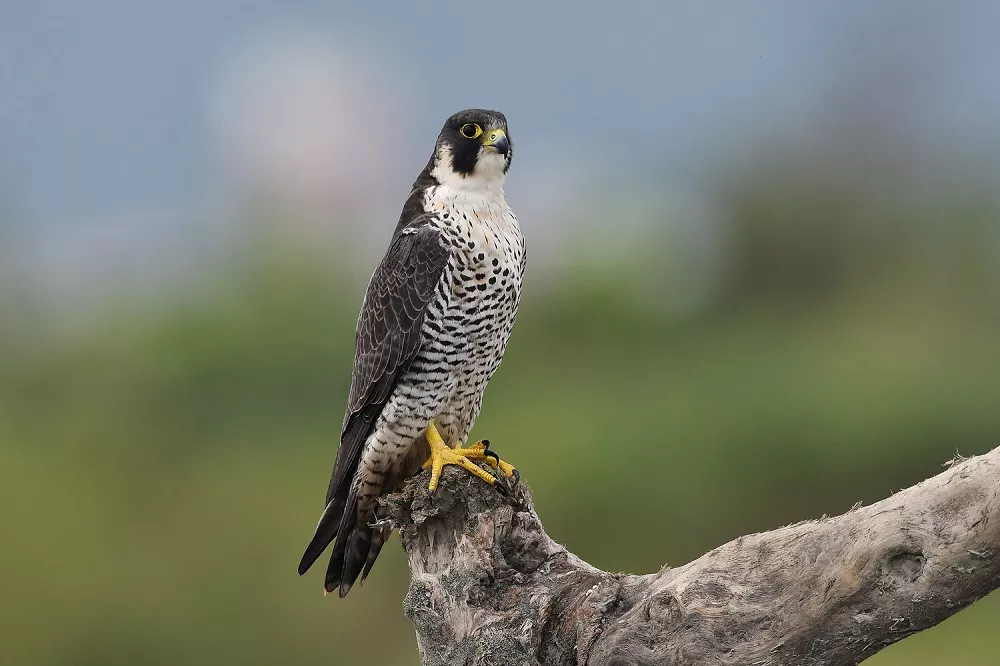Peregrine falcons (Falco peregrinus) are renowned for their breathtaking speed and remarkable hunting prowess. As apex predators, peregrine falcons exhibit a diverse diet that primarily consists of other birds. One of Peregrine falcons favorite prey is pigeons.
The Predatory Nature of Peregrine Falcons
Peregrine falcons are one of the fastest animals on earth, capable of reaching speeds of up to 240 miles per hour when they dive in pursuit of their prey. They are found all over the world, from North America to Asia and Europe, and can be found in a variety of habitats, from urban areas to rural landscapes. The peregrine falcon is a versatile hunter, and its diet is made up of a variety of different bird species, with pigeons being one of its most common prey.
Pigeons as Prey
Pigeons, often referred to as rock doves (Columba livia), are a familiar sight in urban areas worldwide. Due to their abundance and accessibility, pigeons have become a potential food source for peregrine falcons in urban environments. Peregrines have been observed hunting and successfully capturing pigeons, making them an important part of their diet, particularly in urban settings where pigeons are prevalent.
Pigeons are one of the most abundant bird species in urban areas, making them an easy target for peregrine falcons. Pigeons are not particularly agile in the air and are slow compared to other birds, which makes them an easy target for a peregrine falcon. Pigeons are also relatively large birds, which means they provide a good-sized meal for the falcon. This combination of size and relative ease of capture makes pigeons a favorite food source for peregrine falcons.
Urban Adaptation
Peregrine falcons have demonstrated remarkable adaptability to urban environments, utilizing tall buildings and bridges as substitute cliff ledges for nesting and hunting. The abundance of pigeons in cities provides a readily available food source for peregrines, making them well-suited to urban habitats.
Ecological Significance
The predation of pigeons by peregrine falcons in urban areas can have ecological benefits. Pigeon populations often grow rapidly in urban environments, leading to increased competition for resources and potential negative impacts such as disease transmission and damage to infrastructure. Peregrine falcons help regulate pigeon populations by preying on them, thereby contributing to the overall health and balance of urban ecosystems.
Coexistence and Conservation
The presence of peregrine falcons in urban areas serves as a valuable indicator of ecosystem health and biodiversity. Conservation efforts aimed at protecting and providing suitable nesting sites for peregrines can promote their presence in urban environments and contribute to the control of pigeon populations naturally.
Public Perception and Education
The hunting behavior of peregrine falcons, including their predation on pigeons, can sometimes evoke mixed reactions from the public. Education and outreach programs are essential in fostering an understanding of the ecological role of peregrine falcons and their importance in maintaining healthy urban ecosystems. These programs can help cultivate a greater appreciation for the natural dynamics between predator and prey and promote coexistence between humans and these magnificent raptors.
Conclusion
Peregrine falcons are opportunistic predators that include pigeons in their diet, particularly in urban environments where pigeons are abundant. Their exceptional hunting abilities, coupled with the adaptability to urban landscapes, make them well-suited to prey on pigeons as a readily available food source. The ecological significance of this predator-prey relationship lies in the regulation of pigeon populations and the promotion of balanced urban ecosystems. By understanding and appreciating the dietary relationship between peregrine falcons and pigeons, we can work towards fostering coexistence and conservation efforts that benefit both these remarkable raptors and the urban environments they inhabit.


 Facebook
Facebook  Instagram
Instagram  Youtube
Youtube 